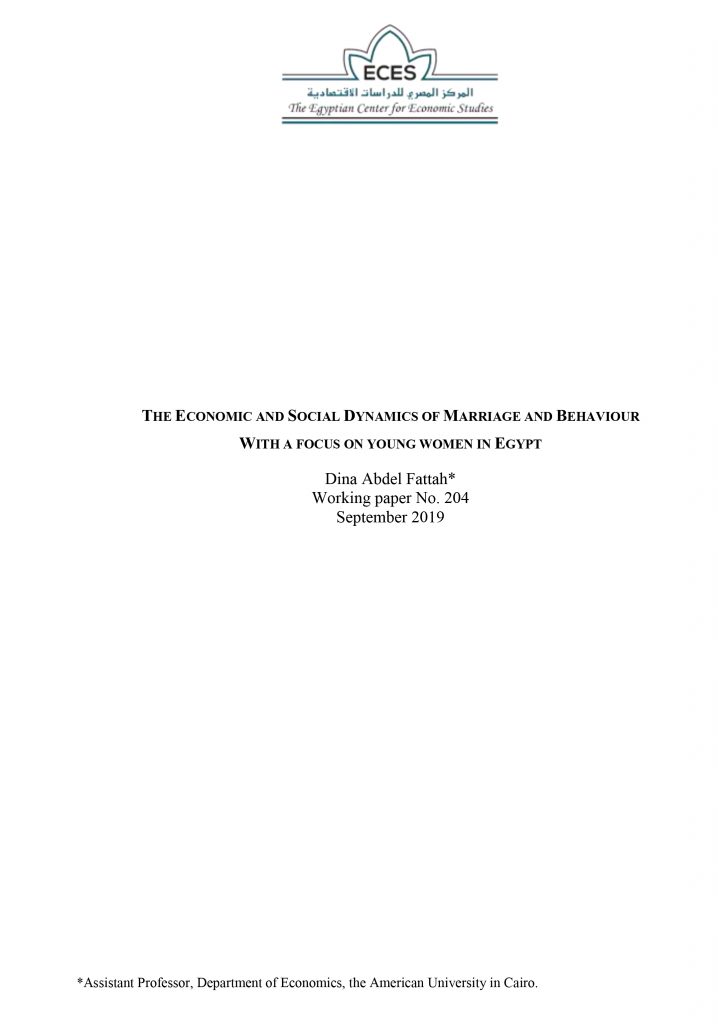This paper examines the factors determining young married women’s marital happiness. It explores economic, institutional and non-economic aspects and finds that economic and institutional variables, namely the labour market outcomes highly impact their marital happiness, while non-economic variables such as the number of children and the female’s religiosity tend to be the main drive of marital happiness for young wives. The basis of the analysis is dependent on married females aged 15-29 years selected from the Survey of Young People for the year 2009. The dependent variable consists of the ordinal responses to a question on self-reported happiness at marriage. The model used is an ordered probit given the categorical nature of this variable. Main findings highlight the fact that the female’s education and financial security in the household translated into asset ownership increase her happiness in marriage, while her employment, long hours of domestic chores and the husband’s annual earnings lower this rate. In that sense, women economic empowerment policies need to give more attention to social policies with respect to the institution of marriage in order to provide a more enabling infrastructure for women.

The Economic and Social Dynamics of Marriage and Behavior: With a Focus on Young Women in Egypt
30-09-2019
Author(s): Dina Abdel Fattah, Assistant Professor, Department of Economics, the American University in Cairo
Publication Number: ECES-WP204-E
